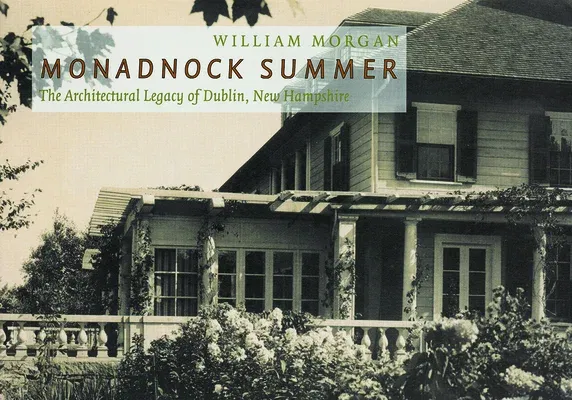A fascinating look into a special corner of New England summer home
architecture: the many styles of homes in Dublin, New Hampshire.
The small, high, mountain town of Dublin, New Hampshire was known as an
artistic and literary retreat in the last quarter of the nineteenth
century. Less well known, but equally fascinating, is Dublin's claim as
home to just about every architectural style and several major domestic
architects of the late nineteenth and early twentieth century. On its
slopes, overlooking deep, spring-fed Dublin Lake and the looming Mount
Monadnock, we find a virtual encyclopedia of building styles, ranging
from the plain and unadorned to the most ornate and ambitious. A list of
the architects who plied their trade in this small town would include
Charles A. Platt, Peabody & Stearns, Rotch & Tilden, Henry Vaughan, and
Lois Lilley Howe.
In this immensely readable and enjoyable survey, veteran architectural
historian William Morgan takes the reader on a verbally vivid and
visually varied tour of the terrain, concentrating not only on the
traditional and expected examples that crop up in Dublin as often as
elsewhere, but also on the eccentric, unusual, and often unique
extravaganzas that pepper its slopes. For Dublin was a place which for a
century had both the money and the taste to indulge architects of all
stripes and styles, and to give them commissions to design among the
most beautiful and original examples their talents could produce.

